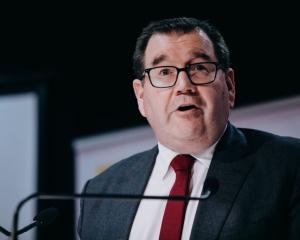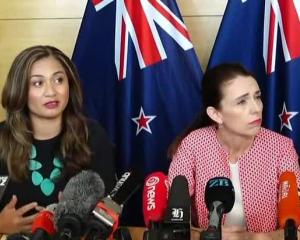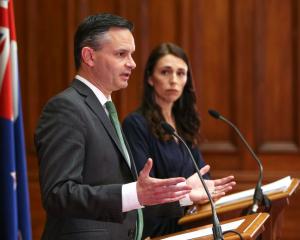
Raising the spectre of 1970s-style industrial relations to warn voters off Labour probably would have had more impact 20 or 30 years ago. Younger voters do not remember the industrial ructions of 40 years ago, and there is public scepticism these days about the market’s ability to set fair wages.

The 1970s taunt has been trotted out by National repeatedly to mock Labour’s fair pay agreements (FPA) policy. It would involve high-level bargaining between businesses and unions in some industries, setting basic standards for pay and conditions.
Business groups are sceptical, including the Employers and Manufacturers Association, whose chief executive Kim Campbell says members are raising concerns about what would happen to workplace relations.
Ironically, one of National’s signature achievements is the caregiver pay agreement, which effectively established industry pay rates. It was achieved without ructions of any sort, amid strong public support. While it came about through a gender equity pay claim, it is not unlike the sort of process that might happen with an FPA.
The caregiver pay agreement benefited a group lacking in bargaining power that had few avenues to achieve a pay rise.It had public sympathy arguably not because of concern over unequal pay for women, but because it shone a light on the shockingly low pay received by a group of skilled workers.
Labour leader Jacinda Ardern drew a direct comparison between FPAs and the caregiver agreement in an interview last week with Larry Williams on Newstalk ZB.
"It had the effect of having an industry-wide standard being set for home-care workers, and I think most people would agree that was a good thing to do.
"Strikes will not be on the table when negotiating fair pay agreements. I am absolutely happy to rule that out," Ms Ardern said.
There would likely be one or two FPAs per year, she said.In the 1980s, workers’ share of income started to fall steeply, one of the sharpest falls in the OECD, the Council of Trade Unions says. Corporate profits claimed 19% of overall income last year, its highest share since 1940, the CTU says.
Labour says FPAs would prevent a "race to the bottom" that sometimes meant "good employers" were undercut by "bad employers".
"FPAs will create a framework for fair wage increases where good employers are not commercially disadvantaged for doing the right thing.
"FPAs will cover all employees and workplaces within the relevant industry. Negotiations on FPAs will begin once a sufficient percentage of employers or employees within an industry call for one."
The detail, including the numbers needed to trigger a negotiation, has not been worked out.
"This threshold and the precise implementation of FPAs will be developed in government in consultation with all stakeholders," the party says.
Ms Ardern’s Labour is anxious to avoid a rerun of the so-called "winter of discontent" in 2000, when the business community pushed back against Helen Clark’s government.
The signals are that big business is not perturbed by the prospect of an Ardern Labour government, with the possible exception of FPAs.
Business will not be worried by Labour’s promise to lift the minimum wage to $16.50 an hour. At just 75c more than the present rate, it is little more than the likely next increment. Its minimum wage policy has a vague nod towards more aggressive increases based on the "real cost of living", with a business-friendly caveat.
"Over time, we will work towards lifting the minimum wage to two-thirds of the average wage as economic conditions allow," its policy says.
Labour would double the number of labour inspectors, an uncontroversial move, given concerns over workplace safety and migrant worker exploitation.












